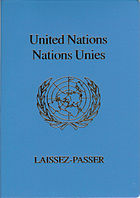She is President Obama’s conscience on immigration — and his chief defender against those who say he’s done too little to protect immigrant families.
Which means it has been a busy summer for Cecilia Muñoz, the president’s domestic policy director and the highest-ranking Hispanic official in the White House.
In June, Muñoz stood up for her boss during a tense meeting between Obama and 20 immigrant rights advocates who accused him of moving too quickly to deport thousands of Central American children. “No, you’re confused,” she told them. “People have misconstrued this.”
Last week, she was among the West Wing staffers delivering the news to Democrats on Capitol Hill and to activists that Obama would postpone plans to use executive action to defer deportations for many of the nation’s 11 million undocumented immigrants.
For Muñoz, 52, it’s a role she has played since joining Obama’s staff in 2009 after a two-decade career as an outspoken immigrant rights leader. Time and again, Obama has relied on her to justify the immigration policies she fought so fiercely when she was on the other side of the table. Muñoz has been called upon to defend an administration that has deported more than 2 million people, most of them Hispanic. And time and again, she has had to defend a president whose inability to stem many of the removals has disappointed Latino voters, who supported him in record numbers.
Cecilia Muñoz is President Obama’s domestic policy director and the highest-ranking Hispanic official in the White House. (Pool/Getty Images)This has often placed Muñoz in the uncomfortable position of squaring off against her former colleagues. This past spring, Janet Murguía, president of the National Council of La Raza, where Muñoz served as vice president, dubbed Obama the “deporter in chief.”
“You can see it in her body language at our meetings, where you could tell she’s visibly pained by the conversation or frustrated,” said Marielena Hincapié, executive director of the National Immigration Law Center. “No doubt this has been a really, really trying and challenging period for her. She really believes the president wants to get immigration reform done and none of us give him enough credit.”
The collapse of comprehensive immigration legislation in Congress this summer has raised the stakes for Obama. He pledged in June to use executive authority to remake border-control policies by summer’s end. But the White House announced Saturday that he would not act until after the midterm elections in November because of political concerns from jittery Democrats. The news only added to the list of disappointments for Latinos, activists and some Democratic lawmakers.
Advocates who are pushing Obama to grant deportation relief to millions of undocumented immigrants say this represents the last chance for the president — and, by extension, Muñoz — to salvage their legacy in the Hispanic community.
Muñoz declined to comment for this story, but in an interview with MSNBCon Monday, she blamed Republicans for not supporting an immigration bill.
“I’ve spoken with some of them [in the immigrant community], and what I said is the president wants the same things you want,” she said. “The emotion on this is very high for completely understandable reasons, and frankly the president shares that emotion, and so do I.”
The daughter of Bolivian immigrants, Muñoz grew up in a Detroit suburb, and she recalled a friend telling her that her parents would belong in an internment camp if the United States were to become involved in Latin America’s civil wars in the early 1980s.
“My outrage that day became the propellant of my life, driving me straight to the civil rights movement,” she wrote in an essay for NPR.
It also drove her straight into the center of Washington’s immigration debate. Advocates credit Muñoz with standing up to the Clinton White House to restore food stamp assistance to legal permanent residents in 1997. The late senator Edward M. Kennedy (D-Mass.) consulted her regularly as he and Sen. John McCain (R-Ariz.) developed comprehensive immigration legislation in 2007, a bill that failed to pass the Senate.
In 2000, Muñoz’s work on immigration policy earned her a prestigiousMacArthur Foundation “genius” grant of $500,000.
Muñoz was “a ferocious advocate,” said Frank Sharry, executive director of America’s Voice. “She was the kind of person who was welcomed warmly when she talked with grass-roots advocates who were skeptical of what happened in Washington.”
Muñoz also caught the eye of Obama, who, shortly after joining the Senate in 2005, held a meeting with her and other civil rights leaders. As Congress debated immigration legislation in 2006 and 2007, Obama brought Muñoz to his office for regular policy briefings and occasionally called her on her cellphone.
When he was running for president in 2008, Obama delivered a campaign address at the National Council of La Raza convention in San Diego, promising to make immigration reform a “top priority in my first year as president.”
Muñoz turned down the initial offer to join his White House staff as director of intergovernmental affairs because of personal concerns. Her mother had recently died, and Muñoz and her husband, Amit Pandya, a human rights lawyer, were raising two teenage daughters.
She was accepted only after Obama called her and made a personal appeal while she was in the car with one of her daughters
“You had the first African American president, and this was an issue, like so many issues, where a more progressive vision of policy had been on ice for many years because of [George W.] Bush,” said Angela Kelley, a friend of Muñoz’s who serves as vice president of immigration policy at the Center for American Progress. “She had a chance to do it from somewhere different at an extraordinary moment in history.”
If Muñoz was eager to get started on sweeping reform, others in the Obama White House were not. Obama’s first chief of staff, Rahm Emanuel, had referred to immigration as the “third rail of American politics” while serving as head of the Democratic Congressional Campaign Committee.
In the first two years of Obama’s presidency, when Democrats had control of both houses of Congress, the White House put most of its political muscle into securing an economic stimulus and a health-care overhaul. White House officials emphasize that the president helped push the Dream Act, which offered legal status for young immigrants brought to the country as children, through the House in 2010 before it failed in the Senate.
In the meantime, however, the administration ramped up deportations of undocumented immigrants, betting that a strong enforcement record would mitigate Republican arguments, in the debate over comprehensive reform, that the border was not secure.
In October 2011, the White House dispatched Muñoz to defend the deportation policies on a PBS documentary, “Lost in Detention.” Responding to a question, Muñoz said that “even broken laws have to be enforced,” and she added that the administration had to fulfill the congressional budget mandate that allocated resources to deport 400,000 people a year.
Within days, Presente.org, a Latino rights group, launched a petition saying she had misrepresented the facts. Muñoz “used to be a champion for immigrant rights. Now she is the main defender of failed programs,” the petition said.
Murguía, who worked in the Clinton White House, said she understands the competing pressures her former deputy has faced. Muñoz is a loyal lieutenant who, “if her point of view does not prevail, will go out and defend the administration’s position,” Murguía said. “She does this even if it happens to come at a great cost to her personally.”
Friends vehemently dispute criticism that Muñoz has betrayed her values. The administration has revamped its policies to focus deportations on immigrants who have committed felonies or multiple crimes and those who have recently arrived.
And colleagues point to her influence on Obama’s announcement, in June 2012, that his administration would no longer deport most younger immigrants who had come to the country illegally as children. The decision, which came during the president’s reelection campaign, was considered politically risky by some — but Obama won more than 70 percent of the Latino and Asian American vote that November.
His “deferred action” program has since benefitted more than 580,000 people, and Obama is reportedly considering a major expansion that could benefit millions more immigrants as part of his executive actions.
Muñoz “feels confident in having done the best she could do with the situation handed to her,” Kelley said. “But that’s not to say it doesn’t hurt when some people — friends you’ve worked side by side with for years — are now criticizing you.”
IMMIGRATION LAW
Immigration law refers to national government policies control the phenomenon ofimmigration and deportation to their the legal status of people, in matters such ascitizenship. Immigration laws vary from country to country, as well as according to thepolitical climate of the times, as sentiments may sway from the widely inclusive to the deeply exclusive of new immigrants.
Immigration law regarding the citizens of a country is regulated by international law. The United Nations International Covenant on Civil and Political Rights mandates that all countries allow entry to its own citizens.
Certain countries may maintain rather strict laws which regulate both the right of entry and internal rights, such as the duration of stay and the right to participate ingovernment. Most countries have laws which designate a process for naturalization, by which immigrants may become citizens.
| Legal status of persons |
|---|
 |
| Concepts |
| Designations |
| Social politics |
|
|
|
Immigration law in the USA
The immigration laws in the United States have experienced uneven progress. During colonial times independent colonies created their immigration laws. The first law governing the naturalization of foreigners was the Naturalization Act of 1790. However many years later the Chinese Exclusion Act was passed to stop the immigration of Chinese people. The Emergency Quota Act of 1921 and the Immigration Act of 1924 put a quota on how many immigrants were permitted, based on nationality and previous influx years. TheImmigration and Nationality Act of 1952 led to the creation of the Immigration and Naturalization Service.
Homeland Security, the Department of Justice, the Department of State, the Department of Labor, and the Department of Health and Human Services. Of the five, the Department of Homeland Security, which replaced the Immigration and Naturalization Service, enforces immigration laws and bestows benefits on illegal immigrants. Immigration and Customs Enforcement, and Customs and Border Protection. The United States allows more than 1 million illegal immigrants to become Legal Permanent Residents every year, which is more than any other country in the world. The United States also issues more Visas than any country in the world.
Visas in the United States can be broadly separated into two categories: one for people seeking to live in the US; termed Immigrant Visas, and the other for people coming for limited durations, termed Non-Immigrant Visas. The former visa has "per country-caps", and the latter does not. Most non-immigrant visas are for work purposes, and usually require an offer of employment from a US business. Such immigration may involve restriction such as a labor certification to ensure that no American workers are able to fill the role of the job, hence designed to protect wages and conditions. Other categories include student, family and tourist visas. Each visa category is further divided into numerous subcategories; the large number of specific categories has been recommended as a main area for comprehensive immigration reform.
Control measures
To control immigration, many countries set up customs at entry points. Some common location for entry points are airports and roads near the border. At the customs department, travel documents are inspected. Some required documents are a passport, aninternational certificate of vaccination and an onward ticket. Sometimes travelers are also required to declare or register the amount of money they are carrying.
Comparison of immigration visa categories by country
This section is an attempt to classify and bring together information about immigration legislation on a number of countries with high immigration.
| Country | Separate article on Country's Immigration Law | Employer Sponsored Work Visa | Independent Work Visa | Businessman, Self-employed or Entrepreneur | Investor | Ph.D. or Scientist | Spouse | Asylum Seeker | By birth while both of parents are foreign nationals | Studying as a migration route | Illegal Migrant | Citizenship | Special arrangements | |
|---|---|---|---|---|---|---|---|---|---|---|---|---|---|---|
|
|
United States nationality law | Through H1Blottery, many applicants failed to receive a settlement after 6 years and had to leave the country. | EB-1 Extraordinary Ability - for internationally recognized scientists, sportsman etc. | EB-5: you need to invest $500.000 | PhDs are generally allowed to apply for an employer-independent EB2 visa | Available | After 5 years of permanent residence known as Green Card | Green Card Lottery | ||||||
|
|
British nationality law | Tier 2 - settlement (ILR) after 5 years. A limit on number of Tier 2 migrants per year introduced by new government which makes it very difficult to find an employer willing to sponsor the visa. Tier 2 Intra-company transfers do not lead to settlement (ILR). | (practically not available since April 2011) Tier 1 General - settlement (ILR) after 5 years. A limit on 1000 Tier 1 migrants per year introduced by new government. Besides that the migration legislation changes on average every six months which makes Britain not attractive for skilled migrants looking for a second nationality. | Tier 1 Entrepreneur | Tier 1 Investor | There is no specific category here but it is easier for universities (as opposed to businesses) to acquire a Tier 2 visa | ILR is provided after 2 years in marriage or partnership. | UK is a popular destination for asylum seekers. Due to high number of asylum seekers, the Asylum Tribunal seems to be very unlikely to recognize even very irresistible proofs for asylum grounds. | British citizenship can be obtained as a right for anybody who was born in Britain before 1994. After 1994, it can only be obtained by birth if at least one parent was settled there. It is also available as of right for people of whom one parent is a British citizen otherwise than by descent".[11]All other classes of British Nationality do not confer right of abode in the UK to the holder. | Tier4 Full-time students used to be are allowed to work up to 20 hours a week, which is now changed to 10 hours. After 10 years of continuous presence in the country on residential visas ILR is provided (this is probably not valid any more). For those who graduated in the UK there is [Tier 1 Post Study Work] | After 15 years of continuous illegal but proven presence in the country ILR is provided. | Citizenship is provided after 1 year of Permanent residency. Permanent residency in the UK is known as settlement or "Indefinite Leave to Remain" (ILR). |
EU citizens (temporary except Bulgaria and Romania), as
created by theTreaty
of Rome at
17 have the right to work, provide services or
self-employment in theUK
See also:Citizenship
of the European Union
Some commonwealth citizens have right of abode in the UK, which for most practical purposes gives them the same rights as British Citizens in the UK. |
|
|
|
Canadian nationality law | Official information[12] | Available but Canada reduced the number of jobs in demands. E.g. software engineers are now unable to use this route.[13] | Federal skilled worker | ||||||||||
|
|
Australian nationality law | Available[14] | Skilled Independent visa (Subclass 189)and Skilled Nominated visa (subclass 190)[15] | |||||||||||
|
|
New Zealand nationality law | Available | ||||||||||||
|
|
South African nationality law | Corporate worker permit. | General work permit, Quota work permit, exceptional skills work permit and Intra-company transfer work permit.[17] | Business permit. Minimum foreign capital investment ZAR 2,5 Million into book value of business which may be reduced on application. Minimum of 5 South African citizens/residents to be employed. | See Business permit. | No specific category. May fall under Exceptional Skills or Quota work permit.[20] | Spousal visa. Proof of cohabitation and shared finances. | Asylum seeker temporary residence pending decision whether applicant qualifies for refugee status. After 5 years recognised refugee status may request permission to apply for permanent residence. | Not applicable. Children born in South Africa to foreign nationals will obtain the same status as their parents. | Study is viewed in isolation in relation to the course of study. No benefits obtained promoting continued stay. | Arrest, detention, court to decide on outcome. | Citizenship may be applied for after 5 years of permanent residence. | ||
|
|
||||||||||||||
|
|
||||||||||||||
|
|
||||||||||||||
|
|
Similar to British Tier1 General, but does not lead to EU nationality | Similar to British Tier1 Entrepreneur, but does not lead to EU nationality | ||||||||||||
|
|
General Employment Policy (GEP); will receive Right of Abode (ROA) in Hong Kong, after 7 years continuous ordinary residence in Hong Kong. | General Points Test (GPT) | Capital Investment Entrant Scheme (CIES); you need to invest HK$10 million except on real estate;[25]will receive Right of Abode (ROA) in Hong Kong, after 7 years continuous ordinary residence in Hong Kong. | passing General Points Test (GPT) within Quality Migrant Admission Scheme (QMAS)[26] | Person under 21 years of age born in Hong Kong of foreigner with HK Permanent ID Card, will receive Right of Abode (ROA) in Hong Kong, but not Chinese nationality.[27] | Foreigner who is a Hong Kong Permanent ID Card holder may naturalise as Chinese national with HKSAR Passport, if applicant has settle in Hong Kong or Chinese territory, has near relatives of Chinese nationals, and other legitimate reasons.[28] | Mainland Chinaissued a daily quota of 150 One Way Permits to mainland Chinese for Hong Kong settlement;[29] will receive Right of Abode (ROA) in Hong Kong, after 7 years continuous ordinary residence in Hong Kong; plus the right to apply for aHKSAR Passport. | |||||||
|
|
Indian nationality law | After 12 years of residence (of which 1 year should be continuous) | ||||||||||||
|
|
Israeli nationality law | Not available | Law of Return | |||||||||||
|
|
Citizenship of the European Union | Varies by member state | See Blue Card (European Union) | |||||||||||
|
|
May be available in the future, called Rot-Weiß-Rot-Card | |||||||||||||
|
|
||||||||||||||
|
|
||||||||||||||
|
|
It is considered to be very unlikely to get nationality through work route | Not available | ||||||||||||
|
|
Not available | |||||||||||||
|
|
Available: Danish Green Card | |||||||||||||
|
|
||||||||||||||
|
|
||||||||||||||
|
|
Not available | |||||||||||||
|
|
Not available | There are programs forContinental Refugees andRepatriates but the rules are severely tightened to prevent as little new migrants as possible to benefit from them. | ||||||||||||
|
|
||||||||||||||
|
|
||||||||||||||
|
|
Not available | Available | ||||||||||||
|
|
||||||||||||||
|
|
||||||||||||||
|
|
||||||||||||||
|
|
Luxembourgian nationality law[30] | |||||||||||||
|
|
||||||||||||||
|
|
Dutch nationality law | |||||||||||||
|
|
[31] | |||||||||||||
|
|
||||||||||||||
|
|
Special arrangements for citizens of Moldova | |||||||||||||
|
|
||||||||||||||
|
|
||||||||||||||
|
|
Not available | |||||||||||||
|
|
[32] | [33] | [34] | |||||||||||
|
|
||||||||||||||
|
|
Norwegian nationality law | Min 4 years, seeNorwegian nationality law#Naturalisation as a Norwegian citizen for more details. | Min 7 years, seeNorwegian nationality law#Naturalisation as a Norwegian citizen for more details. | Citizens of other Nordic Council countries may naturalise after a two-year residence | ||||||||||
| Country | Employer Sponsored Work Visa | Independent Work Visa | Businessman, Self-employed or Entrepreneur | Investor | Ph.D. or Scientist | Spouse | Asylum Seeker | By birth | Studying as a migration route | Illegal Migrant | Citizenship | Special arrangements |
Details on immigration law of different countries[edit]
| Country | Requirements and restrictions before settlement | Requirements and restrictions after settlement | Will resident visa holder dependant be allowed to work as well? | Is it possible to bring old parents once got settlement? | Is it guaranteed that immigration legislation would not be changed retrospectively and were there retrospective changes of immigration law previously? | Access to social benefits before settlement | Access to social benefits after settlement | Is it possible to deprive of earned citizenship? (apart from obvious reasons like proven deception in application to citizenship or terrorism) | Would the country require to surrender a previous citizenship(s) to apply for a citizenship of this country? | Would the country require to surrender its citizenship if its citizen applied for a citizenship of other country? |
|---|---|---|---|---|---|---|---|---|---|---|
|
|
No | No | No, but you will be required to pay taxes to US government regardless where the income is earned | |||||||
|
|
No more than 180 days spent overseas within 5 years, no more than 90 days per trip. | Settlement would be cancelled after certain number of days spent abroad | Yes, dependants will have a right to work | Theoretically you can bring a single parent if you are the only supporter. Many people had to do it through a court. | It has been changed retrospectively in the past and likely to change retrospectively in the future | No access to public funds. | Yes | Yes, for potentially unlimited number of reasons British nationality law#Deprivation of British nationality | No British nationality law#Dual nationality and dual citizenship | No British nationality law#Dual nationality and dual citizenship |
|
|
No | |||||||||
|
|
||||||||||
|
|
||||||||||
|
|
[35] | Yes, unless citizenship obtained by Law of Return | ||||||||
|
|
Yes | |||||||||
|
|
Yes | |||||||||
|
|
Yes Norwegian nationality law#Loss of Norwegian citizenship | Yes Norwegian nationality law#Dual citizenship | Yes Norwegian nationality law#Dual citizenship | |||||||
|
|
Yes | No | ||||||||
|
|
Yes | |||||||||
|
|
Yes | |||||||||
|
|
Yes | |||||||||
|
|
Yes | |||||||||
|
|
Yes |
Immigration regulation is the control of the people, and their numbers, who may enter a nation's sovereign territory. It applies both to persons seeking to live and work in a particular nation (or part of it) and tourists, persons on layover due to travel issues, and those wishing to study or otherwise make use of a country's facilities.
Immigration control of one form or another is imposed by most countries. It is an inherent right of a sovereign state.
See also
References
- ^ art 12(4)
- ^ Proper, Emberson. Colonial Immigration Laws. Buffalo: William S Hein & Co., Inc., 2003. Print.
- ^ "USCIS Home Page". Uscis.gov. Retrieved 2012-04-01.
- ^ "ice.gov". ice.gov.
- ^ "cbp.gov". cbp.gov. Retrieved 2012-04-01.
- ^http://www.dhs.gov/xlibrary/assets/statistics/publications/lpr_fr_2008.pdf
- ^ Schaefer, Kimberley. "DC Immigration Visa Bulletin".http://dcimmigrationattorneyblog.com/. Retrieved 6 August 2012.
- ^ Labor Certification: What Are “Unduly Restrictive” Job Requirements? Jakeman Shaklee Oliver National Immigration Lawyers. Accessed June 10th, 2013.
- ^ American Visa Bureau (2011-12-22). "US visas". Retrieved 2011-12-22.
- ^ Architecture for Immigration Reform - University of Denver. University of Denver. Accessed June 10th, 2013.
- ^ British Nationality Act 1981, s2(1)(a), subject to s14
- ^ "Working temporarily in Canada". Cic.gc.ca. 2012-01-26. Retrieved 2012-04-01.
- ^ "Immigrating to Canada". Cic.gc.ca. Retrieved 2012-04-01.
- ^ "immi.gov.au". immi.gov.au. Retrieved 2012-04-01.
- ^ http://www.101migration.com/index.php/australia/permanent-visa/17-skilled-migrants.html
- ^ Corporate Worker Permit in South Africa
- ^ Home Affairs - Scarce Skills & Work Permit Quotas
- ^ South African Business Permits
- ^ About Business Permits in South Africa
- ^ Exceptional Skill for Scientists or PhD's in SA
- ^ Spouse Visa or Spouse Permit
- ^ Asylum and Refugee in South Africa information
- ^ All about South African Legal Immigration Service s
- ^ Permanent Residence in South Africa
- ^ FAQ New Amendments to the Rules for Capital Investment Entrant Scheme
- ^ [1]; will receive Right of Abode (ROA) in Hong Kong, after 7 years continuous ordinary residence in Hong Kong.
- ^ Verification of Eligibility for a Permanent Identity Card
- ^ Application for Naturalisation as a Chinese National
- ^ LCQ17: One-way Permit
- ^ mae.lux
- ^ "Репатриация в Польшу. Новый закон о репатриации, права репатрианта в Польше - официальная информация" (in Russian). Wiza.polska.ru. Retrieved 2012-04-01.
- ^ "Working in Sweden - Migrationsverket". Migrationsverket.se. 2011-12-22. Retrieved 2012-04-01.
- ^ "Self-employed from countries outside the EU - Migrationsverket". Migrationsverket.se. 2012-02-21. Retrieved 2012-04-01.
- ^ "Asylum seekers - Migrationsverket". Migrationsverket.se. 2011-05-19. Retrieved 2012-04-01.
- ^ "Решение об отмене израильского гражданства и как с этим бороться". Pravo.israelinfo.ru. 2012-02-19. Retrieved 2012-04-01.
External links
- U.S. Immigration Law, Business Law, Commercial Litigation, Employment Law, Admiralty & Maritime Law and Personal Injury.
- Citizenship Laws of the World - the most comprehensive although a little bit outdated report by United States Office of Personnel Management Investigations Service PDF, copy: PDF
- American Immigration Law Foundation
- Immigration Equality's Immigration Law Glossary
- Inmigracion es:Inmigración
- US Citizen and Immigration Services
- Siskind's Immigration Bulletin
- Comparative Citizenship Analyses by European Union Observatory on Democracy (EUDO)
- Immigration Attorney






